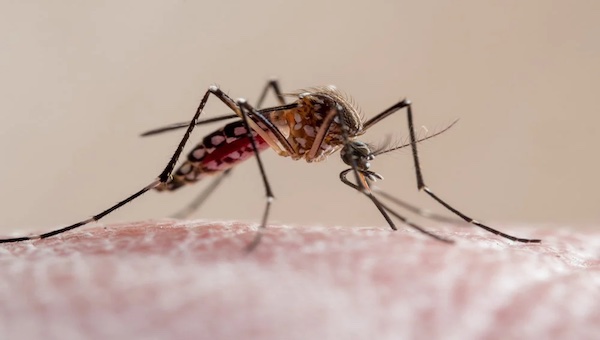 'Aedes aegypti' can carry several diseases, including yellow fever, dengue and Zika virus -
Joao Paulo Burini via Getty Images
'Aedes aegypti' can carry several diseases, including yellow fever, dengue and Zika virus -
Joao Paulo Burini via Getty Images
WHY A U.S. COMPANY PLANS TO RELEASE 2.4 BILLION GENETICALLY MODIFIED MOSQUITOES
BY: MARGARET OSBORNESITE: SMITHSONIAN MAGAZINE
TRENDING
Activism
Belief
Big Pharma
Conspiracy
Cult
Culture
Economy
Education
Entertainment
Environment
Global
Government
Health
Hi Tech
Politics
Prophecy
Science
Social Climate
Universe
War
The insects, created by biotech firm Oxitec, will be non-biting males engineered to only produce viable male offspring, per the company.
The Environmental Protection Agency has cleared the release of 2.4 billion genetically-modified mosquitoes in California and Florida. The mosquitoes, created by biotech firm Oxitec, will be non-biting Aedes aegypti males engineered to only produce viable male offspring, per the company. Oxitec says the plan will reduce numbers of the invasive Aedes aegypti, which can carry diseases like Zika, yellow fever and dengue.
Female mosquitoes will die, while males will reproduce and spread the self-limiting gene to the next generation, eventually leading to population declines. While these diseases aren’t yet spreading in California, the invasive insect has been flagged as a growing risk as their numbers increase across the state, reports the Guardian’s Gabrielle Canon.
“Given the growing health threat this mosquito poses across the U.S., we’re working to make this technology available and accessible,” Oxitec CEO Grey Frandsen says in a statement. “These pilot programs, wherein we can demonstrate the technology’s effectiveness in different climate settings, will play an important role in doing so.”
The mosquitoes will also contain a genetic marker so that scientists can easily identify them from wild populations, per Oxitec.
The experiment is an extension of a pilot project that the EPA approved in 2020, the company says. In 2021, Oxitec released 144,000 genetically-modified mosquitoes in the Florida Keys. It also released mosquitoes in Brazil, claiming that after 13 weeks, the technology suppressed 95 percent of Aedes aegypti.
“It’s ingenious,” Mustapha Debboun, a medical and veterinary entomologist and general manager of the Delta Mosquito and Vector Control District, tells Mashable’s Mark Kaufman. “Instead of using a human being to apply a pesticide to kill these mosquitoes, we’re using male mosquitoes to do the job for us…It’s nature against nature.”
But critics aren’t convinced the mosquitoes will be entirely safe.
“There’s no such thing as 100 percent effective in science,” Dana Perls, the food and technology program manager with Friends of the Earth, tells the Guardian. “Yet the public is being asked to trust that Oxitec’s experiment will work and no [genetically-engineered] female mosquitoes will survive. But how do we know that?”
The Guardian reports opponents are concerned about the mosquitoes coming in contact with Tetracycline, an antibiotic used in agriculture, that the publication says would allow female mosquitoes to survive.
Supporters say the mosquitoes rarely travel more than 500 feet from where they’re born, reports Lisa M. Krieger for Mercury News. EPA regulations require that the mosquitoes cannot be released within “500 meters of wastewater treatment facilities, commercial citrus, apple, pear, nectarine, peach growing areas, or commercial cattle, poultry and pig livestock producers,” per The Guardian.
Still, critics say more tests should take place in controlled environments.
“Once released into the environment, genetically engineered mosquitoes cannot be recalled,” Dr. Robert Gould, president of San Francisco Bay Physicians for Social Responsibility, tells Mercury News. “Rather than forge ahead with an unregulated, open-air genetic experiment, we need precautionary action, transparent data and appropriate risk assessments.”
Click 3 Dots Below to View Complete Sidebar


